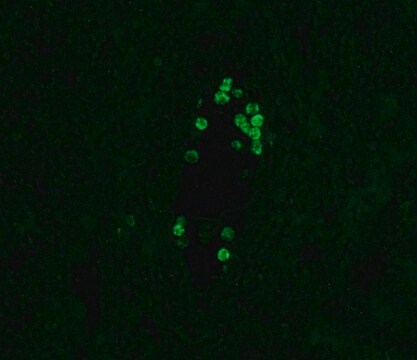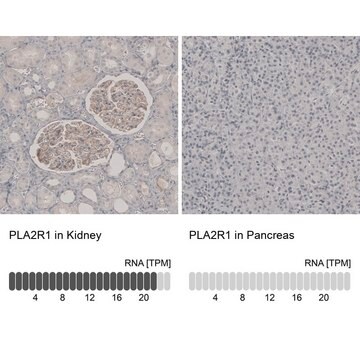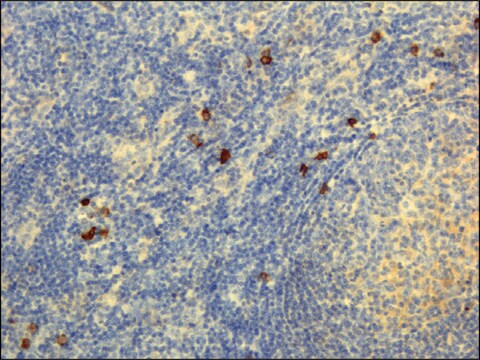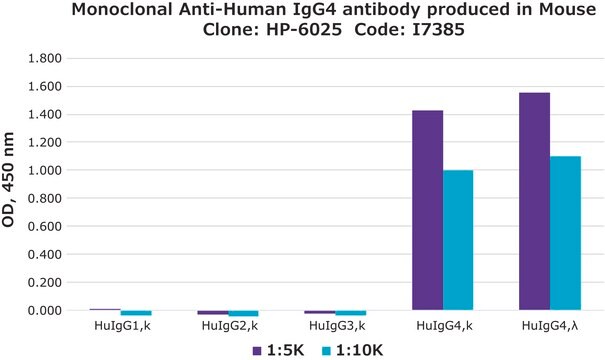367M-1
IgG4 (MRQ-44) Mouse Monoclonal Antibody
About This Item
Polecane produkty
pochodzenie biologiczne
mouse
Poziom jakości
100
500
białko sprzężone
unconjugated
forma przeciwciała
culture supernatant
rodzaj przeciwciała
primary antibodies
klon
MRQ-44, monoclonal
opis
For In Vitro Diagnostic Use in Select Regions (See Chart)
Postać
buffered aqueous solution
reaktywność gatunkowa
human
opakowanie
vial of 0.1 mL concentrate (367M-14)
vial of 0.5 mL concentrate (367M-15)
bottle of 1.0 mL predilute (367M-17)
vial of 1.0 mL concentrate (367M-16)
bottle of 7.0 mL predilute (367M-18)
producent / nazwa handlowa
Cell Marque™
metody
immunohistochemistry (formalin-fixed, paraffin-embedded sections): 1:100-1:500
izotyp
IgG1κ
kontrola
tonsil
Warunki transportu
wet ice
temp. przechowywania
2-8°C
wizualizacja
cytoplasmic
Powiązane kategorie
Opis ogólny
Jakość
 IVD |  IVD |  IVD |  RUO |
Powiązanie
Postać fizyczna
Uwaga dotycząca przygotowania
Inne uwagi
Informacje prawne
Nie możesz znaleźć właściwego produktu?
Wypróbuj nasz Narzędzie selektora produktów.
Certyfikaty analizy (CoA)
Poszukaj Certyfikaty analizy (CoA), wpisując numer partii/serii produktów. Numery serii i partii można znaleźć na etykiecie produktu po słowach „seria” lub „partia”.
Masz już ten produkt?
Dokumenty związane z niedawno zakupionymi produktami zostały zamieszczone w Bibliotece dokumentów.
Nasz zespół naukowców ma doświadczenie we wszystkich obszarach badań, w tym w naukach przyrodniczych, materiałoznawstwie, syntezie chemicznej, chromatografii, analityce i wielu innych dziedzinach.
Skontaktuj się z zespołem ds. pomocy technicznej





